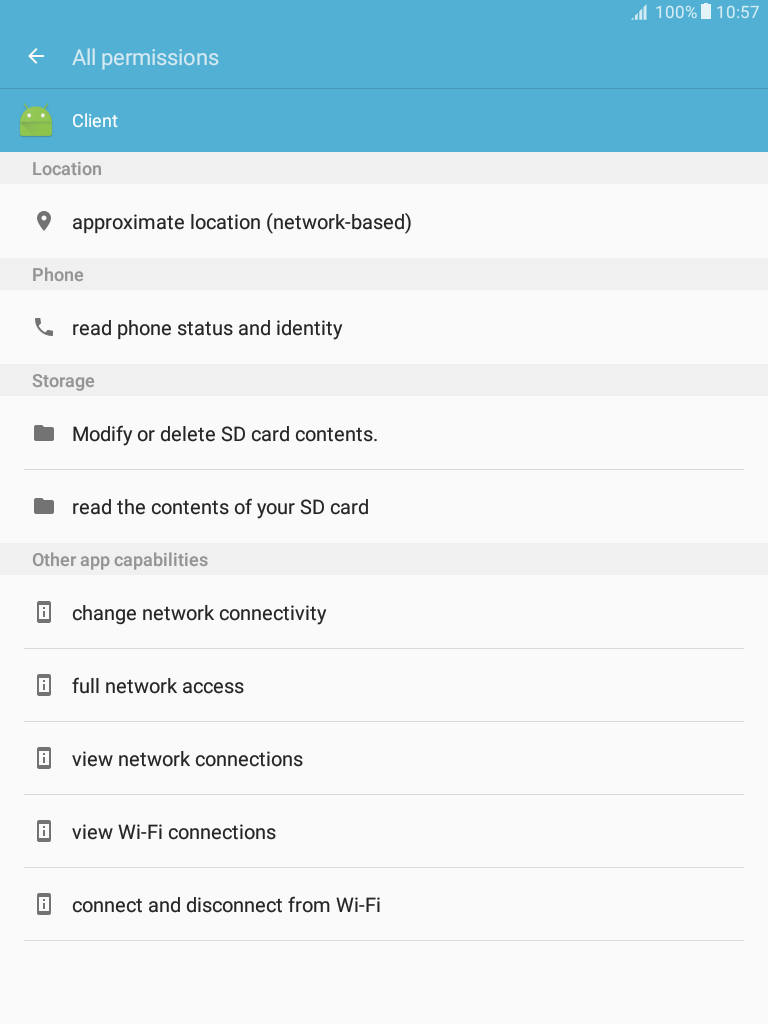Been struggling with connecting to WiFi network in Android 5 and 6 for a while and other similar questions don't seem to work for me. I could get the same code working in Android 4.4.2
Adding the code snippet below.
String networkSSID = getSsid();
String networkPass = getNetworkPass();
WifiConfiguration conf = new WifiConfiguration();
conf.SSID = "\"" + networkSSID + "\"";
conf.status = WifiConfiguration.Status.ENABLED;
conf.priority = 40;
conf.allowedProtocols.set(WifiConfiguration.Protocol.RSN);
conf.allowedProtocols.set(WifiConfiguration.Protocol.WPA);
conf.allowedKeyManagement.set(WifiConfiguration.KeyMgmt.WPA_PSK);
conf.allowedPairwiseCiphers.set(WifiConfiguration.PairwiseCipher.CCMP);
conf.allowedPairwiseCiphers.set(WifiConfiguration.PairwiseCipher.TKIP);
conf.allowedGroupCiphers.set(WifiConfiguration.GroupCipher.WEP40);
conf.allowedGroupCiphers.set(WifiConfiguration.GroupCipher.WEP104);
conf.allowedGroupCiphers.set(WifiConfiguration.GroupCipher.CCMP);
conf.allowedGroupCiphers.set(WifiConfiguration.GroupCipher.TKIP);
conf.preSharedKey = "\""+ networkPass +"\"";
int value = mWifiManager.addNetwork(conf);
Log.i(TAG_CHECK, "Connecting to : " + value);
boolean enabled = mWifiManager.enableNetwork(value, true);
Log.i(TAG_CHECK, "enabled to : " + enabled);
mWifiManager.reconnect();
And here is what I noticed.
mWifiManager.addNetwork(conf)
returns some (+) integer with Android 5(phone) and Android 6(tab).
But both don't connect unless I open the wifi settings (I don't have to do anything and just landing there connects) or I manually turn off and turn on Wifi from the top bar to automatically connect.
The listeners to detect connection to the network are in tact for both the versions to precisely know when the connection get established - confirming the above behaviour. Have attached a pic of the permissions granted below.
Any pointers as to what I am missing?
EDIT: Upon digging into WifiManager class, looks like the Access Point remains in WIFI_AP_STATE_DISABLED state. I should also highlight that everything worked as expected while trying on a different Android M phone.
EDIT2
I have the following observations.
1. The issue so far is specific to 1 android 6.0.1 Samsung tablet and 1 android 5.0.2 Micromax phone. It works just fine on 3 other android 6.0.1 phones, 1 android N phone and Android 4.4.2 phone.
2. The access point ends up in wifi_ap_disabled state in the problematic cases consistently. Both addNetwork and enableNetwork calls are affirmative.
3. These access points are not that of a router wifi but that of other phones that broadcast. The problematic phones can programatically connect to wifi hotspots (setup manually and not in the programatic way as I would like to) without any issue.
4. Mobile data enabled/disabled state or wifi state with a different connected network doesn't change the dynamics for both working and problematic phones.
This makes me think that it is a combination of phones/tabs (and not OS) and the access point broadcast configuration. Do you think I should be playing around with some config parameters?
Edit 3 - Important Update
So the wifimanager is obtained like below
WifiManager mWifiManager = (WifiManager) getSystemService(Context.WIFI_SERVICE);
I instantiate mWifiManager in a service (inside onCreate method) and use that later to scan and connect with inputs from front-end activity. While it doesn't work in the way as described earlier, using the same snippet seems to work when the enableNetwork call is done right in the onCreate method - working just as expected. It also works fine when called from front-end activity but only when I don't instantiate mWifiManager in the service.
Though I would expect only one reference to a system service - WifiManager i.e, I think the subsequent usage of that reference (or a different reference to WifiManager) gets a lower priority (or gets deprioritized by the previous reference) and hence doesn't get completely executed leaving the access point in disabled state and requiring manual intervention to help complete the execution by WifiManager and other wifi system services.
Also, I notice the same in Android 5.0.2 phone, the asynchronous enableNetwork does get executed, but it takes some time to execute it.
My questions
1. It is no more a question about the correctness of the code. Services in general have lesser priority compared to front-end threads So, is there is way I could prioritise the enableNetwork call so that it gets immediately executed?
2. What happens in case of multiple references to WifiManager?


NetworkCallbackusingConnectivityManagerand see if you getonNetworkAvailable()for the SSID that you are trying to connect to. I would also suggest registering forNETWORK_STATE_CHANGED_ACTIONandWIFI_STATE_CHANGED_ACTIONbroadcasts and see different states of network and wifi during the attempt to connect. – MillhonServiceandActivitiesor is it only theServicethat's interacting withWifiManager? Also all of these methods should give you state change callbacks for different states. I don't think it's a problem with multiple references but about synchronization of events.enableNetwork()itself attempts to connect to the provided networkId so you should not be needing to execute it immediately (you wouldn't need a reconnect() to attempt connection) – Millhonservicethat interacts withWifiManager. I indeed get affirmative values withaddNetworkandenableNetworkcalls. But the end state of the access point isWIFI_AP_DISABLED. Making the same calls from onCreate or for that matter from activity seems to make it work fine. – Eggert